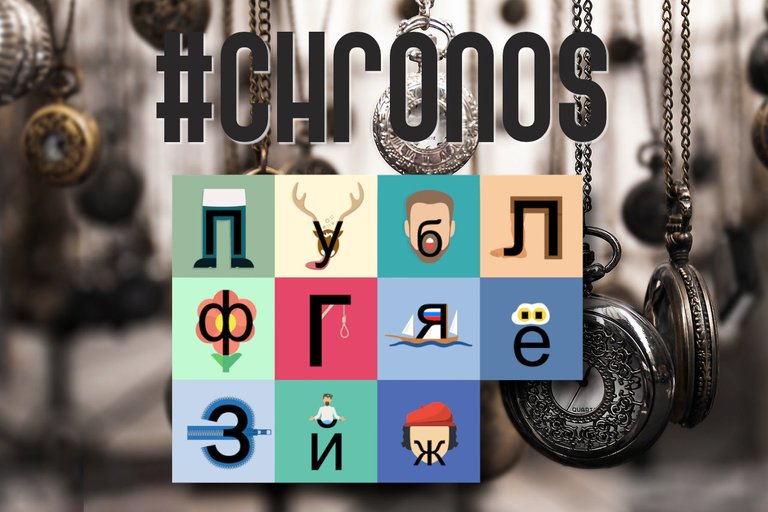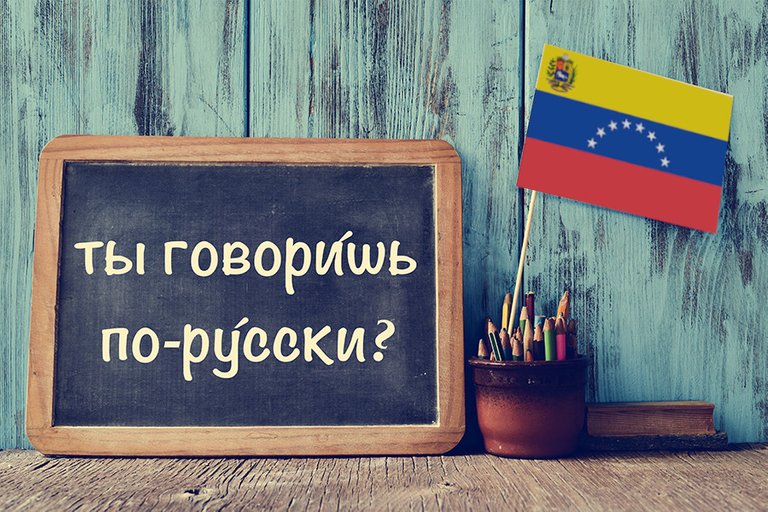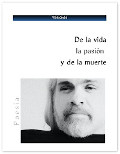
Una de las novedades que tenía la escuela en la que entré en 1969 en Berlín, a nuestra llegada a Alemania, es que, de la misma manera que en nuestra escuelas de occidente solemos tener inglés como materia, allá veíamos ruso. Para mí fue una sorpresa encontrarme con ese enigmático idioma, del cual ni siquiera conocía su cirílico alfabeto.
English version below!
Y vi mis clases de forma regular, pero al igual que suele suceder en nuestros países con el inglés, uno termina sin aprender verdaderamente el idioma, solo te aprendes un par de palabras, unos verbos, uno que otro poema muy corto y quizá una canción.
Sin embargo, esas “pequeñeces” permitieron que cuando nos fuimos a vivir a Moscú, yo no llegara tan perdido con el idioma. Al igual que en Alemania, entré en una escuela normal y corriente soviética, en la que como idioma adicional enseñaban alemán. La lengua de Goethe, Beethoven, de Bach, Einstein y Marx, se había convertido casi en mi idioma materno, pues mi integración en tierras alemanas había sido completa y yo hablaba con acento, pero no venezolano, sino del dialecto berlinés. Por lo tanto, no tendría tanta utilidad para mí esa materia y quizá por esa misma razón, mi papá cambió de opinión y me cambiaron a otra escuela donde enseñaban la lengua de Cervantes, la Escuela Nº 110, que lleva aún el nombre del gran poeta español “Miguel Hernández”.
Entre los objetivos estaba el hecho de aprender los fundamentos de la gramática y ortografía de nuestro idioma que, como materia, nunca más la había estudiado, a pesar de tener un buen dominio del mismo por la práctica familiar y mi afán como lector permanente.
Posiblemente ese mismo razonamiento lo tuvieron muchos diplomáticos y periodistas extranjeros que vivían en la capital rusa, pues para mi sorpresa estudiaban allí un número sorprendente de cubanos (quizá debería decir “cubanas”, pues superaban de manera abrumadora al género masculino), peruanos y algunos bolivianos.
Quizá si yo hubiera sido el único extranjero de la escuela, los maestros hubieran sido menos permisivos, pero con esa gran población que no dominaba la lengua de Tchaikovsky, Pushkin y Lenin, los profesores no hacían mucha presión para que uno se pusiera a nivel con los alumnos nativos.
Por otra parte, ya yo tenía más de 13 años de edad y con el ruso que fui aprendiendo, por ser mi casa un sitio de visita regular de los estudiantes universitarios venezolanos, estos me adoptaron para que los ayudara con el aprendizaje del idioma y a conocer la ciudad. Por tal motivo mis visitas a las residencias estudiantiles y la convivencia con ellos se tornó una constante.
Estos dos factores influyeron de manera negativa en mi aprendizaje del idioma del país más grande del mundo, que si bien lo aprendí, no llegué a dominarlo bien, amén de sufrir de una gran escasez de vocabulario, pues una gran parte de mi tiempo era entre venezolanos y latinos universitarios y con los amigos que hice en la escuela donde mi mejor amigo era el hijo del embajador peruano.
Pero bien dice el refrán “en el país de los ciegos el tuerto es rey”, cuando regresamos a Venezuela, luego de dos años y medio en la Unión de Repúblicas Socialistas Soviéticas, yo hablaba mejor ruso que cualquier otro, pues prácticamente nadie lo hablaba acá. Así que muy pronto me convertí en guía y traductor para muchos eventos.
En los años 90, empecé a trabajar en el Centro Venezolano del Instituto Internacional de Teatro, donde me asignaron varias responsabilidades, entre ellas varias relacionadas con el idioma. Desde allí se tramitó la venida a Venezuela de distintos profesores y yo solía ser quien los recibía, guiaba y hacía las veces de traductor para sus actividades regulares, excepto las clases, lo cual ya era demasiado nivel para mí. Pero entre los proyectos más ambiciosos de esa institución, elaboraron un proyecto con tres profesores de teatro para un curso mucho más elaborado y extenso, que abarcaría tres materias: actuación, expresión corporal y escenografía. Para ello trajeron a tres especialistas y me encargaron a mí de la supervisión completa del mismo y la atención de Sajarov, Roschupkin y Goldberg.
Con ellos me tocó trabajar de manera intensa e involucrarme en la preparación de las clases y aunque tenían traductores parra las mismas, a mí me tocaba todo el proceso preparativo y la discusión de los contenidos con profesores venezolanos. Pero además, como estaban “mudados” para Venezuela, me tocaba acompañarlos en sus compras de alimentos, de ropa, de buscar lavandería y todas las actividades cotidianas.
Esos seis meses de trabajo se convirtieron en el curso intensivo más increíble que uno pueda aspirar y mi graduación fue una reunión de trabajo, con el entonces director de la Escuela de Artes Escénicas César Rengifo, donde se entabló una discusión tan ajetreada que ellos olvidaron que su traductor no era un especialista y se enfrascaron de tal manera en la conversación, que la única manera de que aquella reunión tuviera sentido fue empezar a traducir simultáneamente, algo que hasta para los traductores profesionales lleva un régimen de duración especial, por ser una tarea extremadamente difícil y agotadora, pues uno tiene que ir traduciendo al mismo tiempo que el interlocutor va hablando, sin pausa, por lo cual tienes que ir escuchando y hablando al mismo tiempo. Como es de suponer, al terminar la reunión me dio un dolor de cabeza que me duró el resto del día.
Al final de esos talleres, dos de los profesores ya se habían adaptado de tal manera a estas tierras tropicales y caribeñas, que se quedaron a vivir en Venezuela, donde seguimos en contacto mucho tiempo. Posteriormente yo me retiré de ese trabajo para iniciar una empresa propia y no volví a practicar el idioma por varios años. Sin embargo, el aprendizaje fue tal que desde hace un par de años que retomé la práctica, todos los rusos se sorprenden al saber que no fue en Rusia donde aprendí a hablar como lo hago, sino a casi diez mil kilómetros de mi muy querida y recordada capital rusa, Moscú, y suena paradójico decir que ¡yo aprendí a hablar ruso en Caracas!


English version
One of the novelties of the school I entered in 1969 in Berlin, when we arrived in Germany, was that, in the same way that in our schools in the West we usually have English as a foreign language, there we had Russian. For me it was a surprise to meet that enigmatic language, of which I did not even know its Cyrillic alphabet.
And I saw my classes on a regular basis, but as it usually happens in our countries with English, you end up not really learning the language, you only learn a couple of words, some verbs, one or another very short poem and maybe a song.
However, these "little things" meant that when we went to live in Moscow, I didn't get so lost with the language. As in Germany, I entered an ordinary Soviet school, where German was taught as an additional language. The language of Goethe, Beethoven, Bach, Einstein and Marx, had become almost my mother tongue, since my integration in German lands had been complete and I spoke with an accent, but not Venezuelan, but of the Berlin dialect. Therefore, that course would not be so useful for me and perhaps for that reason, my father changed his mind and I was transferred to another school where they taught the language of Cervantes, School No. 110, which still bears the name of the great Spanish poet "Miguel Hernandez".
Among the objectives was the fact of learning the basics of grammar and spelling of our language which, as a topic, I had never studied again, in spite of having a good mastery of it due to family practice and my eagerness as a permanent reader.
Possibly that same reasoning was held by many foreign diplomats and journalists living in the Russian capital, since to my surprise a remarkable number of Cubans (perhaps I should say "Cuban women", since they overwhelmingly outnumbered the male gender), Peruvians and some Bolivians were studying there.
Perhaps if I had been the only foreigner in the school, the teachers would have been less permissive, but with that large population not fluent in the language of Tchaikovsky, Pushkin and Lenin, the teachers did not put much pressure on one to catch up with the native students.
On the other hand, I was already more than 13 years old and with the Russian I was learning, since my house was a regular visit place for Venezuelan university students, they adopted me to help them learn the language and to get to know the city. For this reason, my visits to the student residences and the coexistence with them became a constant.
These two factors had a negative influence on my learning the language of the largest country in the world, which although I learned it, I did not master it well, besides suffering from a great shortage of vocabulary, because a large part of my time was between university Venezuelans and Latinos and with the friends I made at school where my best friend was the son of the Peruvian ambassador.
But as the saying goes "in the land of the blind the one-eyed man is king", when we returned to Venezuela, after two and a half years in the Union of Soviet Socialist Republics, I spoke better Russian than anyone else, since practically no one spoke it here. So I soon became a guide and translator for many events.
In the 90's, I started working at the Venezuelan Center of the International Theater Institute, where I was assigned several responsibilities, among them several related to language. From there, different professors came to Venezuela and I used to be the one who received them, guided them and acted as translator for their regular activities, except for the classes, which was already too high for me. But among the most ambitious projects of that institution, they elaborated a project with three theater professors for a much more elaborate and extensive course, which would cover three subjects: acting, corporal expression and scenography. For this they brought in three specialists and entrusted me with the complete supervision of the course and the attention of Sakharov, Roschupkin and Goldberg.
I had to work intensively with them and get involved in the preparation of the classes and although they had translators for them, I was in charge of the whole preparatory process and the discussion of the contents with Venezuelan teachers. But also, as they were "moved" to Venezuela, I had to accompany them in their shopping for food, clothes, laundry and all the daily activities.
Those six months of work turned into the most incredible intensive course one can aspire to and my graduation was a work meeting, with the then director of the César Rengifo School of Performing Arts, where they got into such a hectic discussion that they forgot that their translator was not a specialist and got so engrossed in the conversation, that the only way for that meeting to make sense was to start translating simultaneously, something that even for professional translators takes a special duration regime, as it is an extremely difficult and exhausting task, since one has to translate at the same time as the interlocutor is speaking, without pause, so you have to listen and speak at the same time. As you might expect, at the end of the meeting I got a headache that lasted the rest of the day.
At the end of those workshops, two of the teachers had already adapted so well to these tropical and Caribbean lands that they stayed to live in Venezuela, where we kept in touch for a long time. I later retired from that job to start my own business and did not practice the language again for several years. However, the learning was such that since a couple of years ago I resumed the practice, all Russians are surprised to know that it was not in Russia where I learned to speak as I do, but almost ten thousand kilometers away from my beloved and remembered Russian capital, Moscow, and it sounds paradoxical to say that I learned to speak Russian in Caracas!
| Crónicas previas // Previous Chronicles |
|---|
| El precio de tus recuerdos / The price of your memories (3) |
| Teatro, viajes y un nombre / Theater, trips and a name (2) |
| Catia y el azul / Catia and the blue (1) |

Este texto pertenece a mi serie #Chronos. Puedes leer más sobre la misma en Mis crónicas literarias. Si es de tu agrado este estilo y quieres sumarte a la creación de crónicas literarias, te invito a usar la etiqueta #chronos para la misma.
This writing is part of my series #Chronos. You can read more about it on My literary chronicles. If you like this style and want to join the creation of literary chronicles, I invite you to use the hashtag #chronos for it.

Descarga el poemario de @Ylich"De la vida, la pasión y de la muerte"¡Haz clic aquí! |  |
|---|

If you don't have an account at Hive yet, I invite you to read my post My Hive Testimony || Mi testimonio Hive
Si aún no tienes cuenta en Hive te invito a leer mi publicación My Hive Testimony || Mi testimonio Hive

Excelente crónica, @ylich. Me recuerda algo que me contó un amigo, de una amiga suya venezolana que vive en Israel y aprendió hebreo con acento ruso, por el trato con sus vecinos, que eran de la patria de Lenin.
Saludo.
Jajaja, sí hay muchos cuentos de ese tipo. Así conocí yo una vez a un actor en un festival de teatro y el hombre me llega con aquel acento sureño: "Che ¿vos sabes si el cafetín labura a esta hora?" y yo que me pongo a conversar con él. Como tenía un tonito raro, le pregunto que de dónde es a lo que responde que es brasilero... Que lo que pasa es que vive cerca de la frontera con Uruguay y había aprendido a hablar con los uruguayos que pasaban a su pueblo... 😂😂😂
¡Gracias por la visita y el comentario!